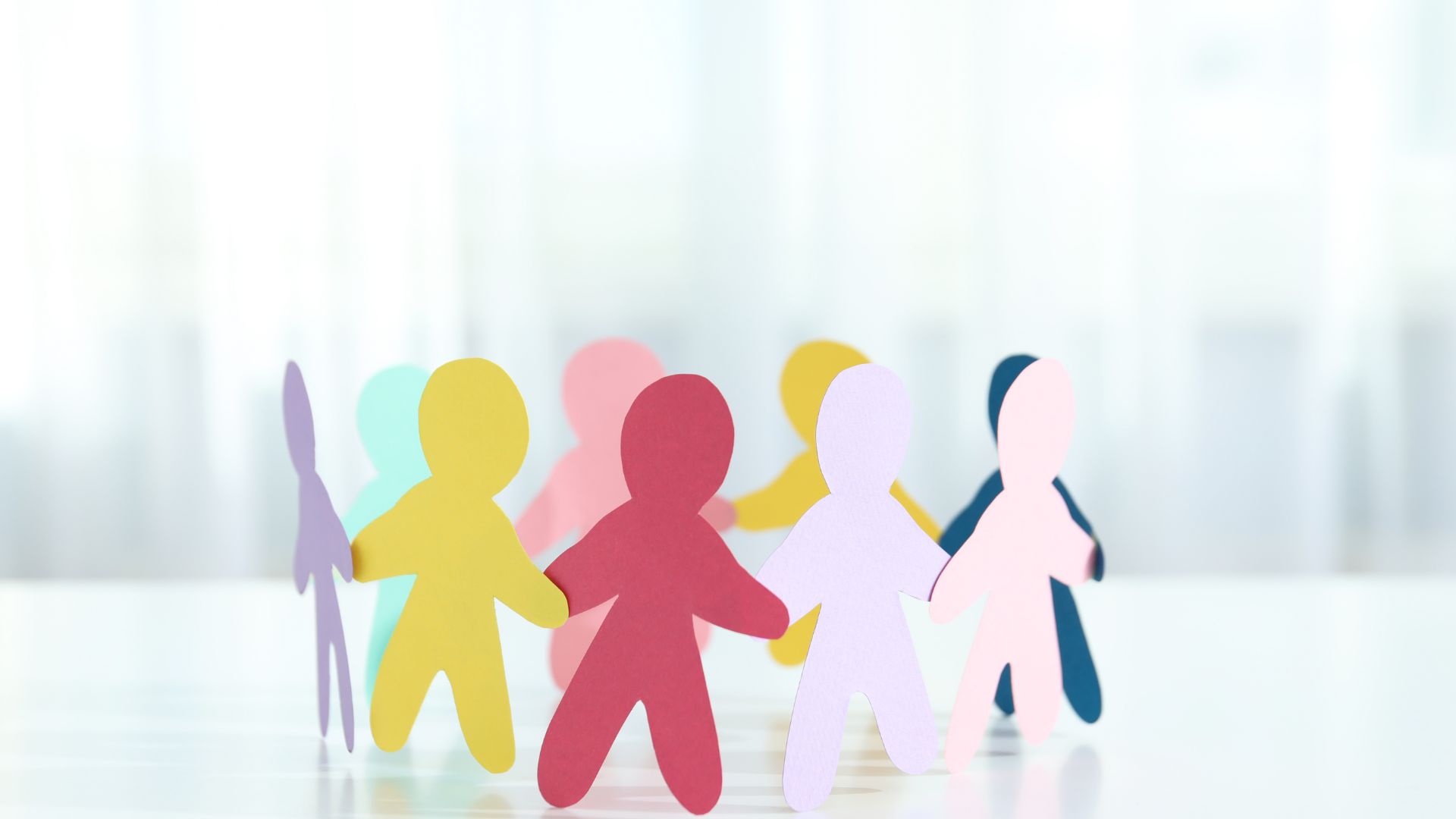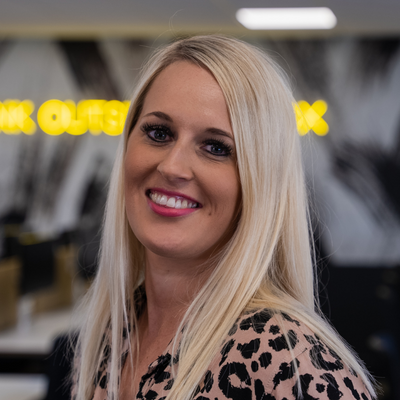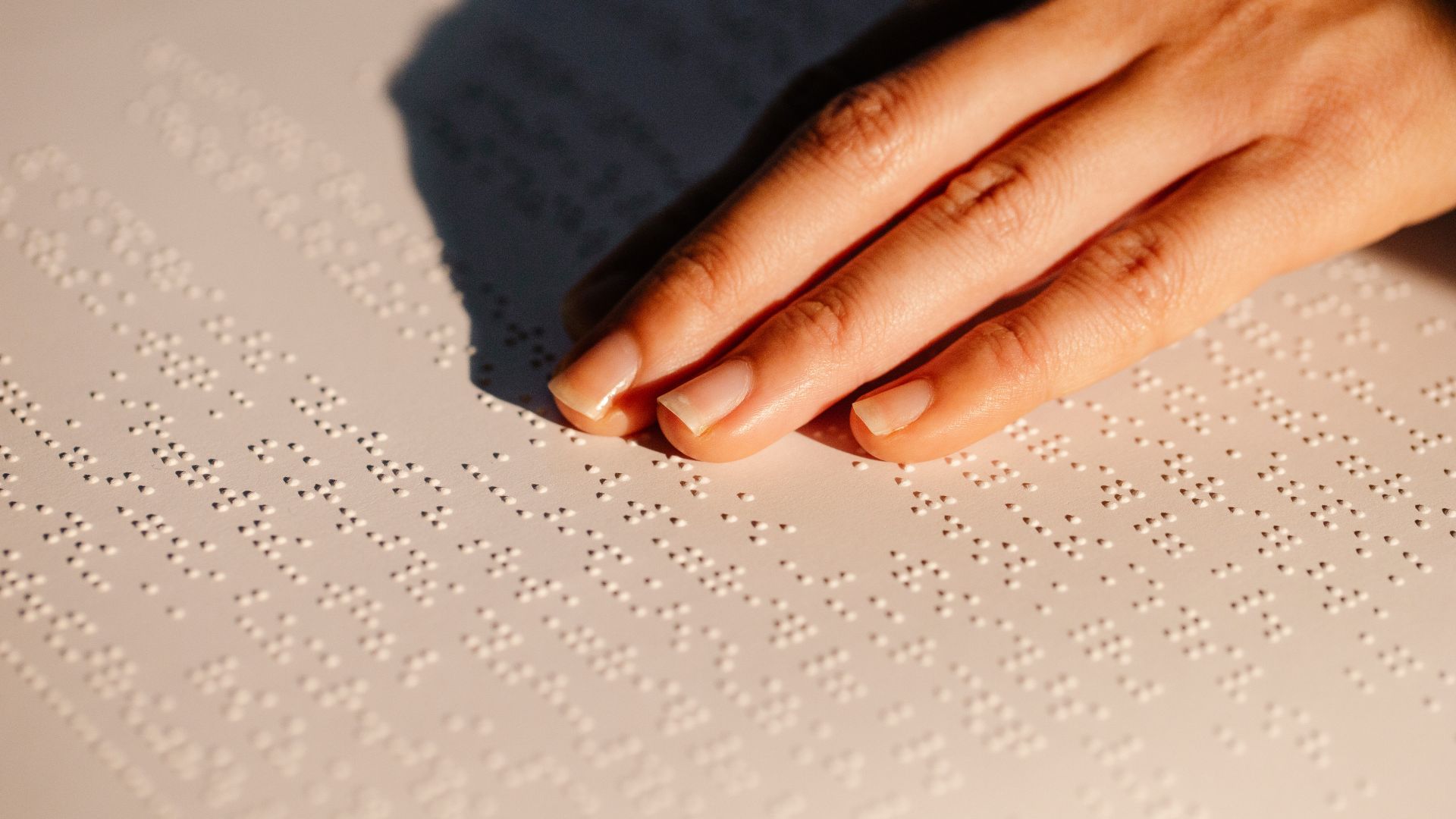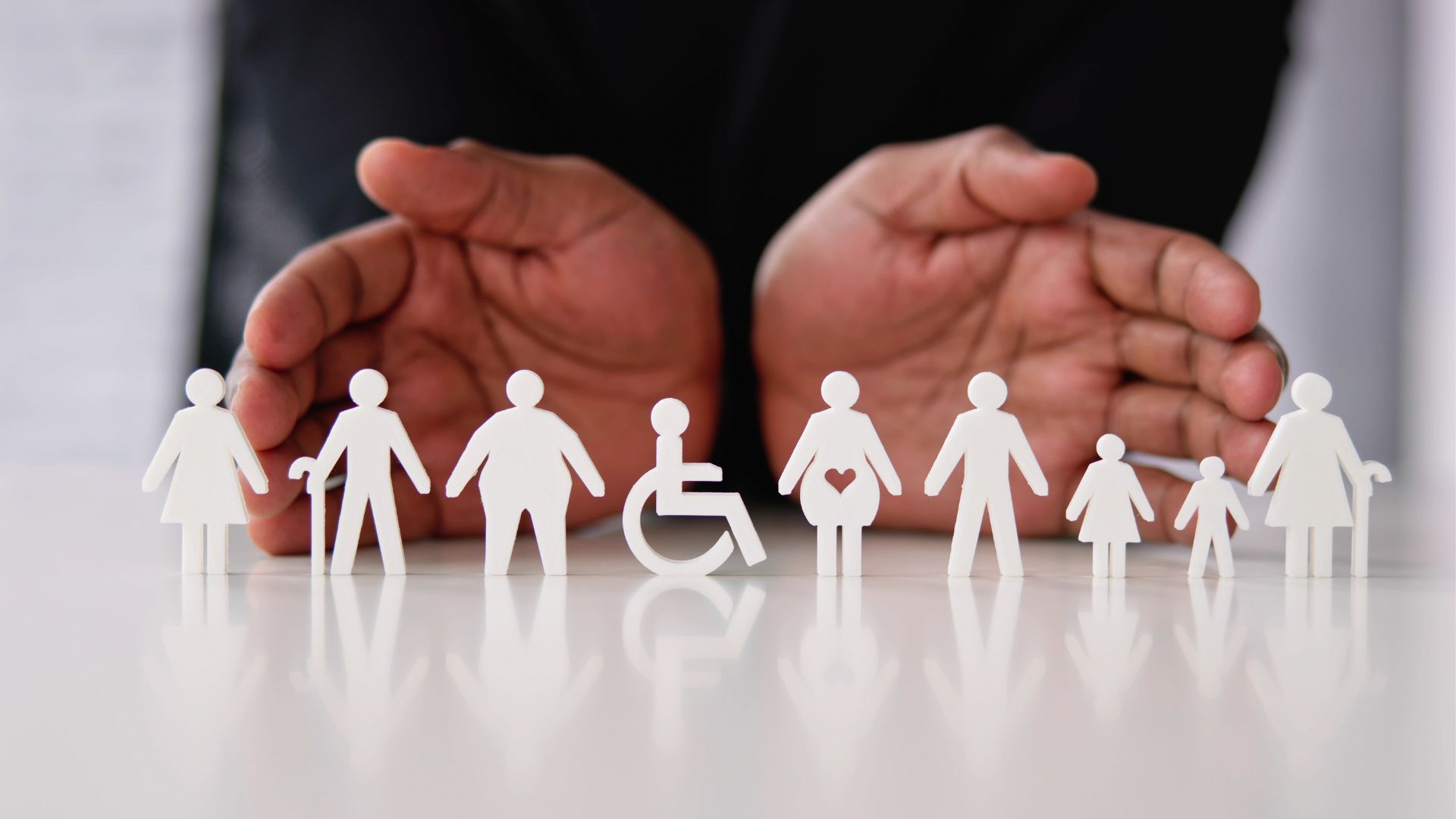
How To Become a BSL Interpreter
12 September, 2024To mark the International Day of the Deaf on 29th September 2024, we sat down with a BSL interpreter with over ten years experience, Sarah Meeks, to...
To mark the International Day of the Deaf on 29th September 2024, we sat down with a BSL interpreter with over ten years experience, Sarah Meeks, to discover more about this essential and fascinating role.
Below is the transcript of the YouTube video.
What’s one piece of advice you would give to a BSL interpreter about the deaf community?
I would say one most important thing is never pretend to know what the deaf person is saying. If you don't understand them, deaf people are very good at understanding when they're not being understood.
They can tell from your body language and your expression on your face that you don't understand them. And there is this thing in interpreting, I think it’s called emphatics - where you nod and you go “yep yeah.”
In sign language we do this, It means yes.
“Yep, Understand?”
“Yeah. Yeah. Got it.”
If you're in a situation where somebody's signing something at you and you're not understanding it, you're not going to be going “Oh yeah, yeah, yeah I understand, I understand.”
You're going to be going [pulls expression on face] and your facial expression will tell them everything. If you start going, “Oh yeah, understand, understand” they're going to not have any confidence in you.
They're going to think this person is trying to wing it because they're not comfortable, because they don't understand me. And that's detrimental to the relationship. But also as a professional, you should never do it.
You should never pretend to understand somebody when actually you don't. It's okay to stop somebody and say, “I'm sorry, I'm not clear. Can you repeat that?”
Can I just understand that or say back to them what you think you've just heard?
“Let me get this right. Is this what you're saying?”
And you can avoid those embarrassing moments of being like, oh, don't understand.
Instead of just being like that, you could just say, “Can I just get this right?” or “Can you just go over that again?” or like you would do in spoken language.
It’s really important in sign language as well, because there are so many nuances with the language and it can be interpreted sometimes in different ways. So you want to be really clear that you're getting what it is that the person is trying to tell you.
So that is my big bugbear, people pretending to understand a deaf person when they don’t understand them.
Explain your job role in 3 words
Communication, empathy and fun.
What does a typical day look like for you?
Well, that's the best thing about interpreting is, I don't have a typical day. My week and my days are so varied that I could literally be in Brussels at the European Parliament one day and then I could be on stage at a festival the next day,
And then I could be in an office or in a medical appointment or at the palace.
I mean, I've done so many things in my job, that are so varied because deaf people get everywhere and I actually mostly work on stage.
So we do a lot of performance interpreting, so I do music and poetry - and all that kind of stuff in theatre.
I also love medical because I work in hospitals a lot and I do a lot of surgeries.
Last week I did an emergency C-section with a deaf parent and watched the baby born.
I can just be at home, remote working and there could be a remote meeting on Zoom, and I just jump on for an hour.
Rest of the day, I’m free to go and play tennis.
Where’s the best place you’ve translated at?
I think probably Buckingham Palace, I've been there a couple of times. The first time I went there for a person that was applying for a role as a cleaner and as part of the interview, they took her up to one of the guest bedrooms overlooking the mall.
And it was just a bit of a pinch me moment because normally when you’re at the palace, looking into the palace, and you see the facade of the palace. and you look into the bedroom windows, I was looking out of those windows at the crowds, and I've done that many times myself as a tourist.
I wouldn’t say I was a royalist, but I love the history of the royal family and I love the history of our country.
And I was under the stairs going through all the back servant routes with all the Beefeaters and the Queen's Guards and everybody just walking past me in their livery.
And then last year, I was at the coronation, and I was at the funeral. It was a coronation.
And I was at the King's first garden party.
And I actually got to walk through the King's private area coming out onto the lawns because long story short but my co-worker basically couldn't walk through the tunnels. (That's a long story.)
I walked through the King's private apartments out onto his private garden which was the Palace Gardens and I was able to stand right next to the king to interpret for him as he came out. He looked at the crowds and he comes down and greets everyone, I gave him a little wink as he came down and he smiled at me.
So I think that was my favorite favorite all time interpreting moment.
What qualifications do you need to become a BSL interpreter?
If you want to be fully qualified as a BSL interpreter, you need to either go and do a university degree or a specific sign language interpreting course.
There was a thing called level six, I forget it changes, you know, quite often, but level six NVQ is kind of the bare minimum to be an interpreter. And I think they're changing that.
But essentially it's a degree or a level six NVQ you can't just say, “Oh, my parents are deaf,
I'm fluent in this language.”
You have to have a qualification. It's usually run by the universities or higher education colleges. I did my level six and then I did an M.A. in sign language interpreting linguistics. I've been qualified for maybe ten years now.
What inspired you to become a BSL interpreter?
I worked in social work for about 20 years and I went through the whole gambit of adults, mental health, children and I did deaf services, independent outreach, supported living, people with learning difficulties, youth clubs - I did the whole breadth of social work.
But I also loved to travel. So quite often I would just work for an agency, do a bit of work, and then I'd go travelling and then I'd come back, work for an agency.
One year I came back from travelling and my friend said, “Oh, you've got sign language skills, haven't you, because your parents are deaf. We're looking for people to help interpret at university and colleges for students that are studying degrees and courses - would you be interested?”
And I was like “yeah, I love learning.”
So that's great because I get to get the education for free and I get paid and it's not a commitment to any specific job. You can choose your hours and in the summer holidays, when the college is closed, I can go travelling.
I started off as what's called a Communication Support Worker. So it wasn't a qualified interpreter, it was a CSW who went in and did the interpreting.
Now they’ve changed the rules where you can't be a CSW in university - you have to be qualified to a minimum level six. I went from the universities to do my M.A. because I realised that I wasn't able to work in other areas, because as a CSW I could only work
in the colleges at that time.
And it wasn't very satisfying because you were stuck with one student for the whole of the course, and if you didn't like the course, and you didn't like the student, or the classmates or whatever, you were stuck there.
So I decided to go and get the qualification to really free me up - because I could have gone into legal and done court interpreting - not interested in that, police work, you know, this education work obviously still going on.
And there were certain things I didn't want to do. I didn’t want to do education anymore. I didn't want to do legal - but I really was interested in medical.
When a friend of mine was at the time studying to become a doctor - and she's deaf with a cochlear implant - and I got to go on her journey as a doctor - and I was basically a doctor for like six years because I did all the medical training. I did all of her F1, F2 and post and she's now like ST7 and I've worked with her for like seven years.
So it was being able to have the interest in all different sorts of areas, but the flexibility to go into those areas with the qualification.
And I really love helping people and every day I feel like at the end of my day, whether I've done a Zoom call or helped give birth or, you know, a social work meeting or something, I always feel like I've helped people I’ve helped people access communication.
I've often been a little bit part social worker, part communicator in difficult meetings and that plays to my strengths because I'm quite an empathic person and social work was my very first love.
So it really ticked all the boxes. I don't have a boss, I have a freedom to work as a freelancer, pick and choose my hours. I've got some regular clients and I can, you know, go travelling with my job.
I've been, you know, abroad for my job. So it really ticks all the boxes for me because it's so varied as well. And I could not do 9 to 5 in an office.No thanks.
So, yeah, this I think, placed my strengths and fits in with my lifestyle. Really.
What is a common challenge you face while interpreting, and how do you handle this?
A common challenge is that you don't get prep and sometimes you go into a meeting blind. And I've had situations once when I went into doctors meeting and I thought it was a blood test result - which it was - but it ended up being a very serious conversation with this guy who had very high potassium and needed blood transfusions for the next week, every single day to drain his entire blood out of his body, because he'd had too much potassium tablets and had been eating too many bananas.
Now, in that situation, you're not expecting a doctor to say you could die because of the results of your blood test. So you know, off the chart.
So preparation and not having preparation is the biggest challenge because sometimes you go into meetings completely blind and you don't know what to expect and you've just got to react to it in the moment.
And there's no preparing for that experience gives you a lot of help because you can say to yourself I’ve done this before, you know, I'll do it in that way, or I'll choose
to do it in that way or whatever. So your experience helps a lot.
But for me, how you deal with it is as much as you can before the meeting starts, to try and pull someone to one side and say “I've not been given any prep. Can you just give me a heads up? What’s this meeting about? Can you tell me just briefly?”
Just try and get 5 minutes with the person and get there early.
First of all, get there super early, talk to somebody.
“What's the meeting about? How many deaf people?”
Try and understand what you're there for.
But prep is the number one thing that you should get that you don't that really impacts on how you manage your job.
What advice would you give to someone considering a career in BSL interpreting?
I would say it's a really great job. It's very demanding and there is quite a lot of politics in the deaf world. I feel like I'm okay because I'm a coder, which means I'm a child of a deaf adult.
So sometimes when you go into bookings with deaf people, they've had such a terrible experience with interpreters, that they're very wary of interpreters.
And if you don't sign very well, they will let you know and they will sometimes not want you to be there and they will ask you not to come back.
So you have to have a bit of a thick skin with some deaf people, and you have to have confidence in yourself.
And that goes back to what I was saying about not pretending because the deaf person will be like, “no, you don't understand me, you're not good enough.”
So I would say, go for it, but be mindful that every deaf person is different.
They sign a little bit different. So you really have to completely immerse yourself in deaf culture in order to learn the language.
If it's not your first language,like it is for me, you've got to be able to understand every single type of deaf person that you're going to meet.
And the only way you can really do that is by meeting lots of deaf people. So go to the deaf clubs, get yourself immersed in deaf culture so that you understand nuances of the language as well as the language itself.
You might have regional variations, you might have people with English as a second language, there are a lot of Eastern European deaf service users in London, and sometimes they don't use English lip patterns. So you really have to rely on sign language because they don't use their mouth to pronunciate.
And the only way you can navigate that is by having the experience, by talking to so many deaf people and having a breadth of experience before you kind of go into the job.
If you've never, ever met a deaf person before and you want to embark on this as a career, you've got a long road ahead of you. It will probably be about ten years before you’ll be fluent. That’s the honest truth - but if you have deaf experience, or you've been a CSW before, then it's not too much of a step.
But also don't take on bookings that are above your experience. Start off with the things you feel comfortable with and are in your area of realm.
Don't be like, “Oh, I'm going to go into court interpreting because that's going to be super interesting listening to a murder trial way out of your league that takes people ten, twenty years to get to. So don't try to run before you can walk and immerse yourself in deaf culture.
Who is Spencer Clarke Group?
Established in 2017, we’re a vibrant and progressive recruitment agency based in the heart of the North West.
We continually reimagine the recruitment process to challenge convention and defy expectations; from creating a better recruitment experience to remodelling employee engagement, we thrive off doing things differently and turning heads along the way.
We operate in two sectors:
In eleven specialisms:
Healthcare, Social Care & Nursing
Corporate Functions & Business Support
Planning, Development & Regeneration
Highways, Infrastructure & Engineering


